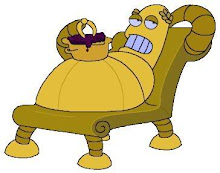
Today I'm going to write about a movie that I like. It is called Into the Wild, and it was directed by Sean Penn. The movie was based on a book (with the same name), which was based on a true story. The film’s premiere was on 2007. The soundtrack was composed by Eddie Vedder. It tells the story of Christopher McCandless, a young American man, who started travelling around the USA after he graduated from the university. Christopher rejected the conventional-material life and wanted to stay away from his parents.
He thought that society was sick, and that man in the city only has access to a false idea of himself. He broke his identification cards and donated his savings to Oxfam. Then he started travelling without telling it to his family.
In the film, Christopher meets many people and work in many places looking for a new life and wanting to go to Alaska, where he thinks he could live “on the wild”. Christopher wanted to start again and to know himself renouncing to the conventional values, which of them he considerate as values of hating and ambition. For that, he creates a new name for himself: Alexander Supertramp.
While Christopher was tripping, he changed and learned so much.
He thought that society was sick, and that man in the city only has access to a false idea of himself. He broke his identification cards and donated his savings to Oxfam. Then he started travelling without telling it to his family.
In the film, Christopher meets many people and work in many places looking for a new life and wanting to go to Alaska, where he thinks he could live “on the wild”. Christopher wanted to start again and to know himself renouncing to the conventional values, which of them he considerate as values of hating and ambition. For that, he creates a new name for himself: Alexander Supertramp.
While Christopher was tripping, he changed and learned so much.



